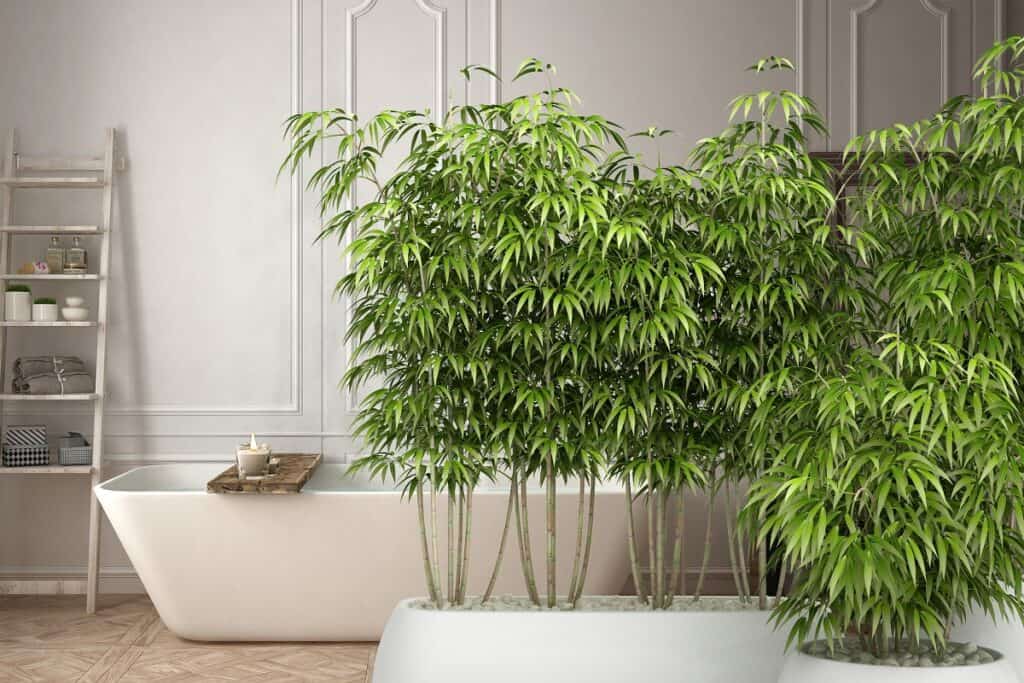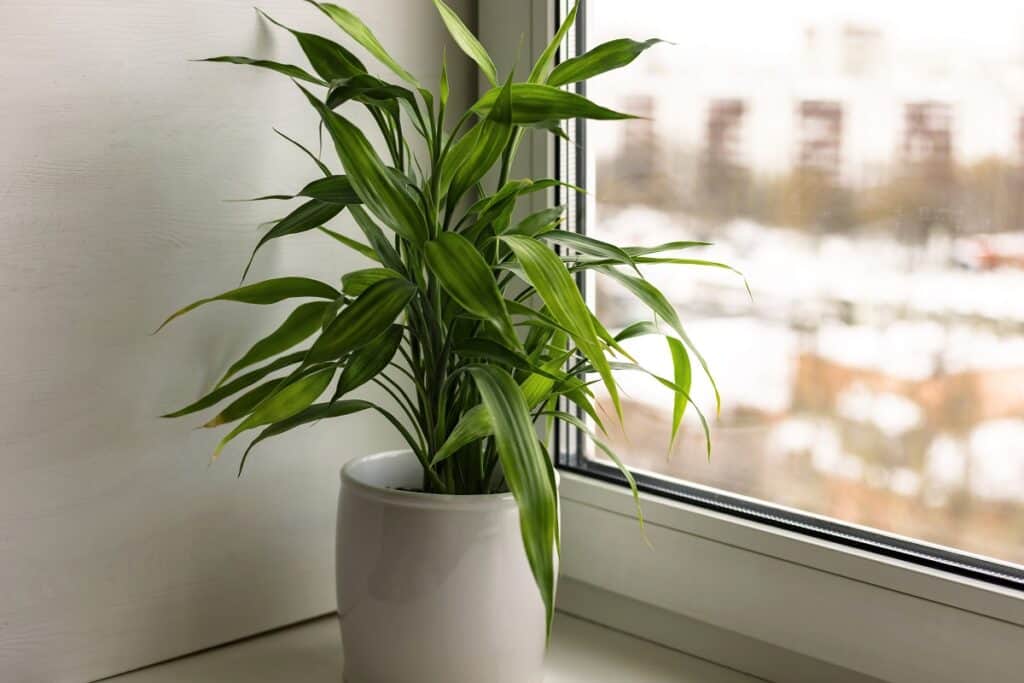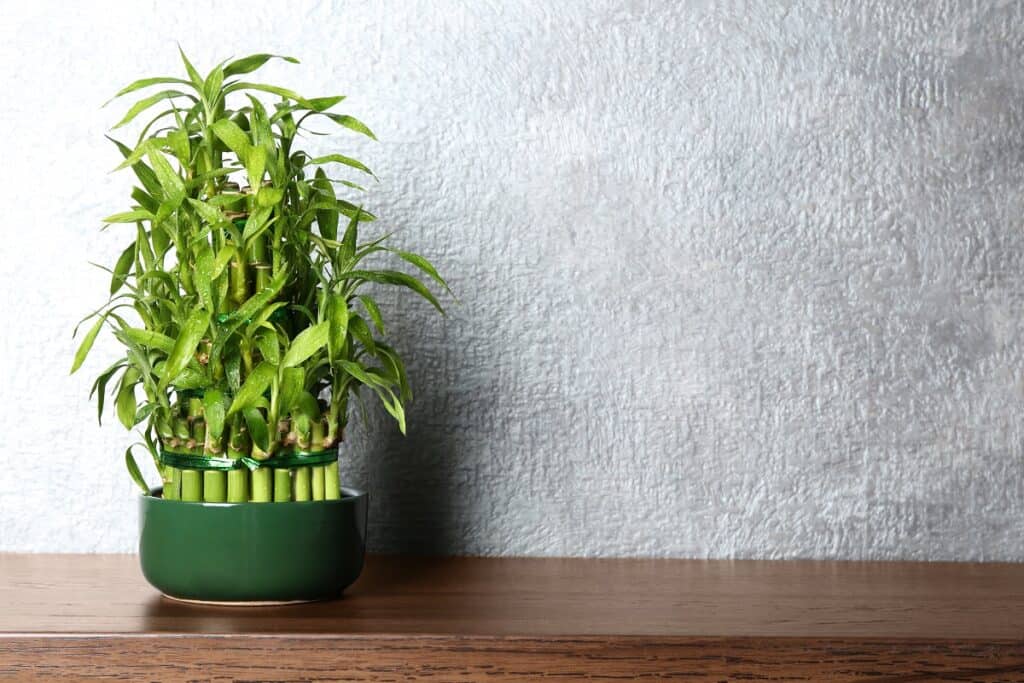If you are a bamboo enthusiast, you know that this fast-growing plant can add a unique and exotic touch to any garden. However, to keep your bamboo healthy and thriving, it is important to provide it with the proper nutrients. In this blog, we will discuss the best fertilizer for bamboo and how to properly apply them to your plants. We will also provide some tips on how to choose the right fertilizer for your bamboo, as well as how often to fertilize it. Whether you are a seasoned bamboo grower or new to the game, this blog will have something for you. Let’s get started!

Contents
- 1 Understanding The Basics Of Fertilizing Bamboo
- 2 Types Of Fertilizers For Bamboo
- 3 What To Look For In The Best Fertilizer For Bamboo
- 4 Benefits Of Using Fertilizer For Bamboo
- 5 How Often Should You Fertilize Bamboo?
- 6 Tips For Applying Fertilizer To Bamboo
- 7 Frequently Asked Questions
- 7.1 When should I fertilize my bamboo?
- 7.2 Can I fertilize bamboo in winter?
- 7.3 What helps bamboo grow faster?
- 7.4 What kills bamboo growth?
- 7.5 Does bamboo need a lot of nitrogen?
- 7.6 Can you over-fertilize bamboo?
- 7.7 Why are bamboo leaves turning yellow?
- 7.8 What causes brown tips on bamboo leaves?
- 7.9 How do I make my bamboo grow thicker?
- 7.10 Is Miracle Grow good for bamboo?
- 7.11 How do I get my bamboo plant to turn green again?
- 8 Conclusion
Understanding The Basics Of Fertilizing Bamboo
Fertilizing bamboo can be a great way to ensure that it grows strong and healthy. In order to ensure the best results when fertilizing bamboo, understanding the basics of fertilizing bamboo is essential.
Fertilizing bamboo will help to ensure that it receives the essential nutrients it needs to grow. These essential nutrients include phosphorous, potassium, nitrogen, and other trace elements. When choosing a fertilizer, it is important to select one that is specifically designed for bamboo plants. It should be high in nitrogen and contain the necessary trace elements.
When fertilizing bamboo, it is important to be aware of the soil pH. Bamboo prefers soil that is slightly acidic, with a pH of between 6 and 7. It is also important to consider the type of bamboo being fertilized, as some types may require more frequent fertilizing.
Finally, it is important to follow the instructions on the fertilizer label carefully. This will ensure that you are applying the correct amount of fertilizer in order to achieve the best results. Fertilizing bamboo too often can be harmful to the plant, so it is important to stick to the recommended schedule. Understanding the basics of fertilizing bamboo will help to ensure that your bamboo plants remain healthy and strong.
Types Of Fertilizers For Bamboo
When it comes to fertilizing bamboo, there are two main types of fertilizers that can be used to ensure your bamboo is healthy and thriving. The two types of fertilizers for bamboo are organic fertilizers and inorganic fertilizers.
Organic fertilizers are the most common type of fertilizer used for bamboo and are derived from naturally occurring sources like manure, compost, and seaweed. These types of fertilizers provide nutrients that are slowly released into the soil, allowing the bamboo to continually feed and grow. Organic fertilizers are also great for the environment, as they are biodegradable and help to improve the soil structure.
Inorganic fertilizers, on the other hand, are made up of synthetic chemicals and are quickly absorbed into the soil. These types of fertilizers provide a fast-acting, concentrated boost of nutrients to the bamboo, but can also be harmful to the environment if used in excess. It’s important to be careful when using inorganic fertilizers, as they can cause damage to the bamboo and the surrounding soil if not used correctly.
When choosing a fertilizer for your bamboo, it’s important to consider the type of fertilizer that’s best for your plants and the environment. Organic fertilizers are a great choice for those looking to be more eco-friendly, while inorganic fertilizers are a good choice for those looking for a quick-acting boost of nutrients. Whichever type of fertilizer you choose, be sure to follow the instructions carefully to ensure your bamboo gets the nutrition it needs to thrive.
What To Look For In The Best Fertilizer For Bamboo
When selecting a fertilizer for bamboo, there are a few important factors to consider. First, the fertilizer should be specifically formulated for bamboo plants. Bamboo has unique nutritional needs, so it is important to select a fertilizer that is specifically designed for this type of plant.
Second, the fertilizer should be high in nitrogen. Bamboo is a very fast-growing plant, so it needs a lot of nitrogen to support its growth. Selecting a fertilizer with a high nitrogen content will ensure that your bamboo is getting the nutrients it needs to thrive.
Finally, the fertilizer should be easy to use. Look for a fertilizer that is simple to apply and that comes with clear instructions. This will make it easier to ensure that your bamboo is getting the right amount of nutrients.
- 12 month coated controlled release
- Professional grade
- High quality, high nitrogen
Benefits Of Using Fertilizer For Bamboo
Fertilizer is an important part of keeping bamboo plants healthy. Without the correct fertilization, bamboo can suffer from poor growth and health. Here are some of the benefits of using fertilizer for bamboo plants:
1. Improved Growth: Fertilizer helps to provide essential nutrients that bamboo plants need to grow strong and healthy. It helps to promote healthy root growth, leaf growth, and overall development.
2. Increased Disease Resistance: Fertilizer helps to strengthen the plant’s immune system, making it more resistant to disease. This means that if a disease does attack the bamboo, it is less likely to be as severe.
3. Improved Color: Fertilizer can help to bring out the vibrant green color of bamboo leaves. This helps to create an attractive and vibrant look for your garden or landscape.

How Often Should You Fertilize Bamboo?
Fertilizing your bamboo is an important step in helping it grow and remain healthy. However, over-fertilizing can be just as harmful as not fertilizing at all, so it’s important to fertilize your bamboo at the right time and in the right amount.
The exact amount and frequency of fertilizer depend largely on the type of bamboo you have, the size of the plant, and the soil conditions. In general, it is best to apply a slow-release fertilizer two or three times a year. Bamboo should be fertilized in the spring, summer, and autumn. You should also consider the age of the bamboo and the amount of water it receives, as these can also affect how much and how often you should fertilize.
It is also important to note that some bamboo varieties require more fertilizer than others. For example, clumping bamboo and some other species may require more frequent fertilization than running bamboo.
In summary, the frequency and amount of fertilizer needed for your bamboo will depend on the type of bamboo, age, soil conditions, and other factors. However, in general, applying a slow-release fertilizer two or three times a year should be sufficient. It is also important to use the right type of fertilizer for your bamboo to ensure optimal growth.
Tips For Applying Fertilizer To Bamboo
When it comes to fertilizing bamboo, it is important to do so in the right way to ensure the best results. Here are some tips to help you get started.
1. Make sure you are using the right fertilizer. Bamboos require a different type of fertilizer from other houseplants, so be sure to read the label carefully to make sure you are using the appropriate product.
2. It is important to apply the fertilizer at the right time. Generally speaking, it should be applied in early spring and again in late summer. Applying it too late in the season can cause the plant to become nutrient deficient.
3. Be sure to apply the fertilizer evenly. This means that you should spread the fertilizer over the entire area where the bamboo is growing, rather than just focusing on one particular spot.
4. Be sure to water the fertilizer in well. This will help the fertilizer to be absorbed more easily by the roots of the bamboo. Also, be sure to water the bamboo deeply, as this will help it to absorb the nutrients more quickly and effectively.
Following these tips will help ensure that your bamboo is receiving the best possible fertilizer and will keep it healthy and thriving.
Frequently Asked Questions

When should I fertilize my bamboo?
It is generally recommended to fertilize bamboo plants once every two to four weeks during the growing season, which is typically spring and summer. In the winter, you can reduce the frequency of fertilization or stop fertilizing altogether, as bamboo plants tend to be less active during this time.
Can I fertilize bamboo in winter?
It is generally not necessary to fertilize bamboo plants during the winter months, as they are typically less active and do not require as much nourishment. In fact, over-fertilization during the winter can actually do more harm than good, as it can stimulate new growth that is not hardy enough to withstand the cold temperatures.
What helps bamboo grow faster?
There are several factors that can help bamboo grow faster, including:
- Adequate water and soil moisture
- Proper sunlight exposure
- Warm temperatures
- Adequate nutrients from fertilizers (particularly nitrogen)
- Pruning to remove dead or damaged stems and leaves
What kills bamboo growth?
Some factors that can inhibit or kill bamboo growth include:
- Lack of sunlight
- Extremely cold temperatures
- Overwatering or poorly drained soil
- Pests or diseases
- Nutrient deficiencies (especially nitrogen)
Does bamboo need a lot of nitrogen?
Bamboo plants do require a significant amount of nitrogen for healthy growth, as it is an essential nutrient for the development of leaves and stems. However, it is important to provide bamboo with a balanced diet and not over-fertilize with nitrogen, as this can lead to excessive foliage growth at the expense of root development.
Can you over-fertilize bamboo?
Yes, it is possible to over-fertilize bamboo, which can lead to nutrient imbalances and other problems. Signs of over-fertilization include yellowing or browning of the leaves, wilting, and stunted growth. To prevent over-fertilization, be sure to follow the recommended application rates for your specific type of fertilizer and pay attention to the needs of your bamboo plants.
Why are bamboo leaves turning yellow?
There are several potential causes for yellowing leaves in bamboo plants, including:
- Nutrient deficiencies, particularly nitrogen
- Overwatering or poorly drained soil
- Pests or diseases
- Cold temperatures
- Over-fertilization
What causes brown tips on bamboo leaves?
Brown tips on bamboo leaves can be caused by a number of factors, including:
- Dry air or insufficient humidity
- Over-fertilization
- Pests or diseases
- Cold temperatures
- Nutrient deficiencies (especially magnesium and manganese)
How do I make my bamboo grow thicker?
To make your bamboo grow thicker, you can try the following:
- Provide the plant with proper sunlight exposure and water
- Fertilize regularly with a balanced fertilizer
- Prune away dead or damaged stems and leaves to encourage new growth
- Plant multiple bamboo plants close together to create a denser canopy
Is Miracle Grow good for bamboo?
Miracle Grow is a balanced fertilizer that can be used on bamboo plants. However, it is important to follow the recommended application rates and not over-fertilize, as too much fertilizer can lead to problems such as yellowing or browning of the leaves.
How do I get my bamboo plant to turn green again?
If your bamboo plant has yellow or brown leaves, there are several things you can try to help it turn green again:
- Check the watering and soil moisture levels. Bamboo plants require consistent watering, but they can also be sensitive to overwatering or poorly drained soil, which can cause the leaves to turn yellow or brown. Make sure you are providing your bamboo with the right amount of water and that the soil is well-draining.
- Fertilize the plant. Bamboo plants can benefit from regular fertilization, especially if they are experiencing nutrient deficiencies. Use a high-nitrogen fertilizer and follow the recommended application rates.
- Check for pests or diseases. Pests such as mites or aphids, as well as fungal diseases, can cause yellowing or browning of the leaves. If you suspect that your bamboo plant is being affected by pests or diseases, you may need to use a pest control product or fungicide to treat the problem.
- Provide proper sunlight and temperature. Bamboo plants require plenty of sunlight to thrive, but they can also be sensitive to extreme temperatures. Make sure your bamboo is getting enough sunlight, but also protect it from excessively hot or cold conditions.
- Prune away dead or damaged leaves. Removing damaged or yellowing leaves can help encourage new, healthy growth. Just be sure to use clean pruning tools to avoid spreading any diseases.
Conclusion
In conclusion, the best fertilizer for bamboo is one that has a higher nitrogen content along with phosphorus, potassium and other necessary micronutrients. Slow-release fertilizers, organic fertilizers, and liquid fertilizers are all good options to consider. It is important to fertilize bamboo regularly during the growing season, but be mindful not to over-fertilize and always follow the recommended application rates. By providing your bamboo plants with the proper nutrients, you can help ensure that they remain healthy and thrive.

